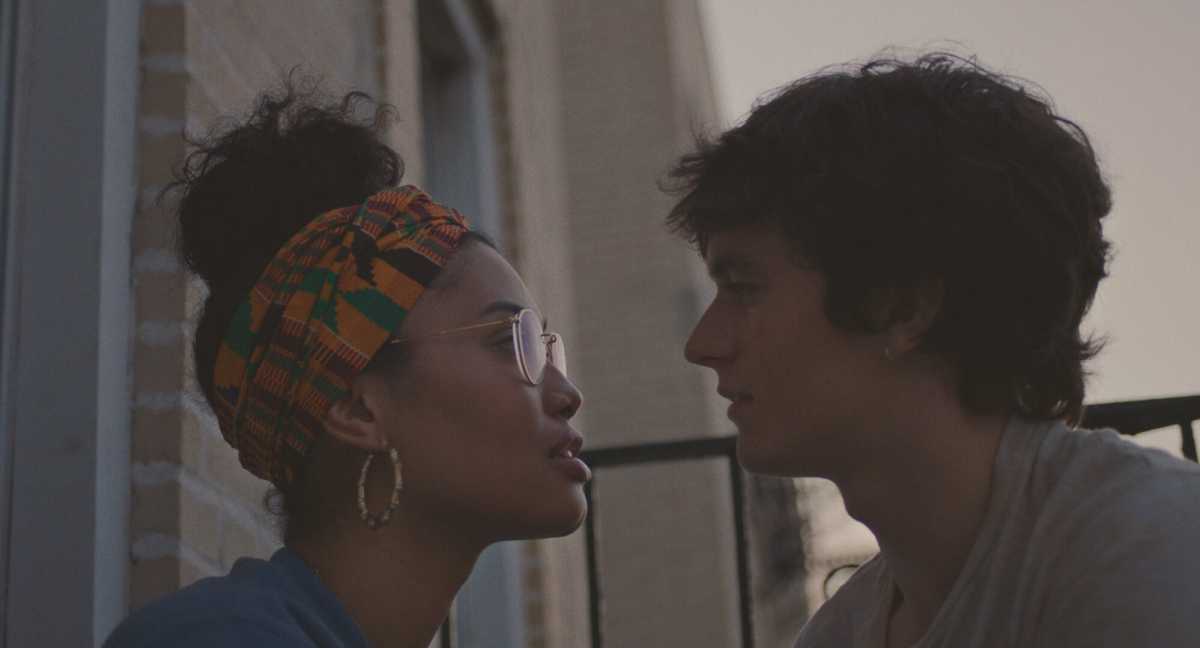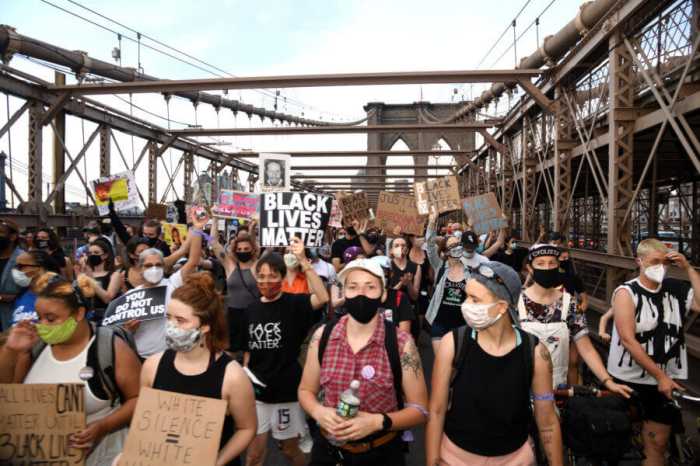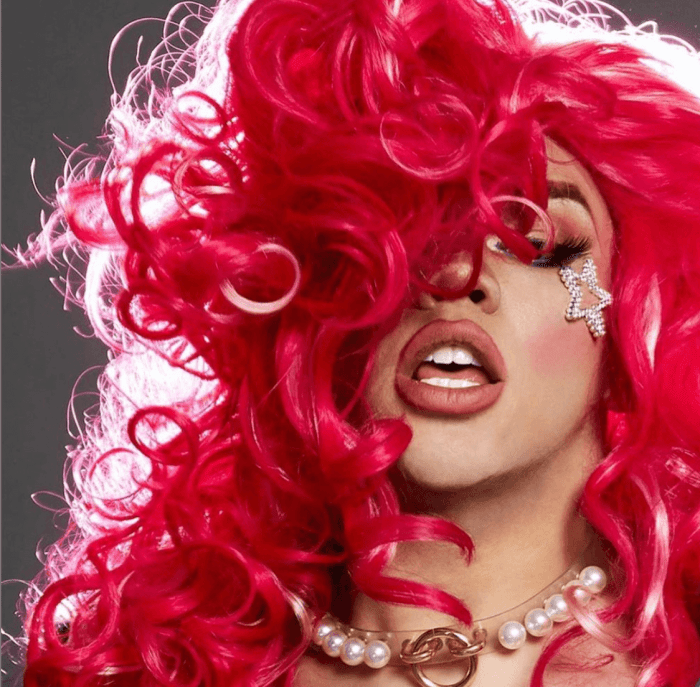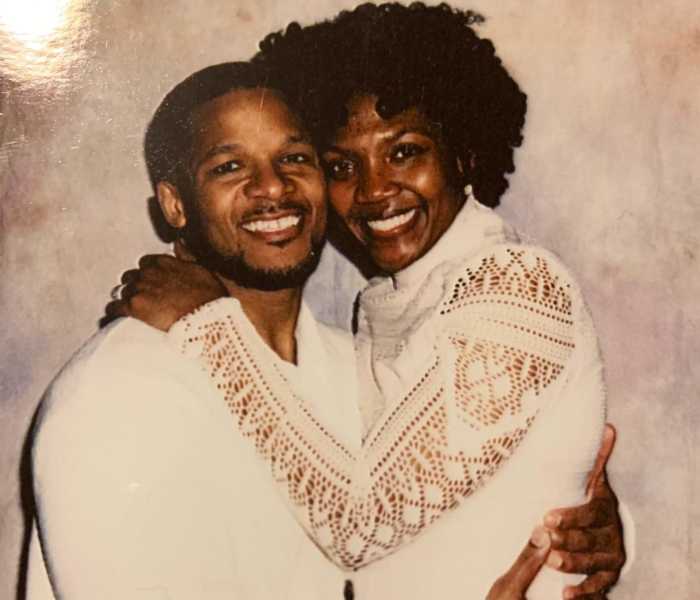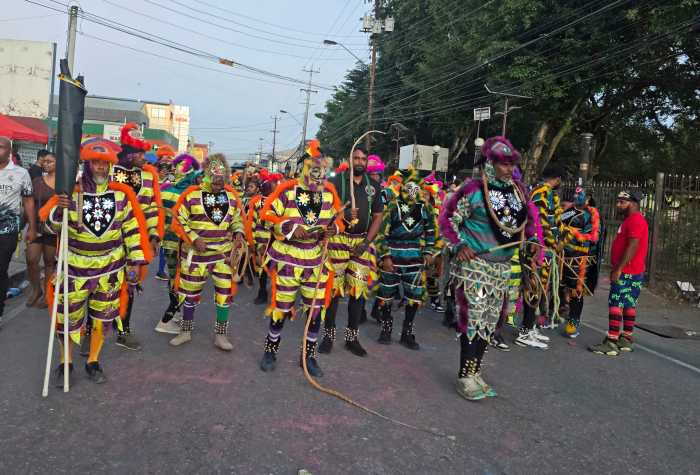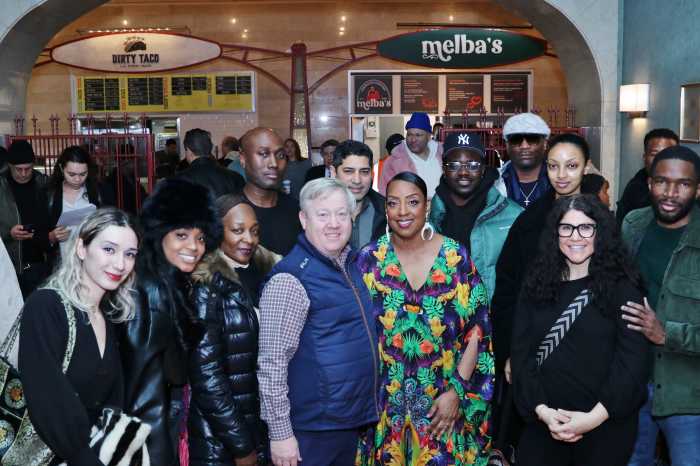Leyna Bloom makes an auspicious film debut as Wye, a New York kiki ballroom dancer, in writer/director Danielle Lessovitz’s gritty and absorbing drama, “Port Authority.” Wye catches the eye of Paul (Fionn Whitehead) a fresh-off-the-bus 20-year-old. Their budding romance is sweet, but it hits a snag when he learns she is trans.
Although “Port Authority” is Paul’s story, Bloom commands the screen in her scenes — especially when she is performing. And given the warm, family atmosphere Wye has in her house run by Mother McQueen (a divine Christopher “Afrika” Quarles), one can see why Paul wants to be a part of this world.
Bloom and Quarles recently spoke with Gay City News about making “Port Authority.”
KRAMER: What decisions did you make about Wye’s character?
BLOOM: Wye is a person that is a combination of a lot of female figures I’ve been in contact with and inspired by in my life. Wye is a person who is loyal to her family and her community, and to who she is as a person living in this world. She knows what she wants and where she wants to go. When she befriends Paul, she stands up for him and wants him to feel welcome. When they have trouble, she stays true to who she is. She’s a very strong woman who wants everyone to be seen and heard and respected equally.
KRAMER: I like that she does not come across as a stereotype. What thoughts did you have about that?
BLOOM: Danielle [Lessovitz] did not want her to be another sex worker or drug addict or in an abusive relationship. She wanted her to be free from those stereotypes and be this person that we want to see in society, and not the negative connotations that are associated with the lives of trans people and trans bodies. It was important to tell that story; it humanizes our experiences.
KRAMER: You get to “walk” in the film. What can you say about performing the ballroom scenes?
BLOOM: I was a trained dancer before I joined the ballroom scene. Dance is a tradition in my family. For me, being a performer in the ballroom scene goes hand in hand with what I want to do. Like most Black and brown bodies, we are not allowed to be in that spotlight so we create moments where we can in other ways.
KRAMER: Afrika, you don’t really get to walk much in the film. How much ballroom experience do you have?
QUARLES: [Laughs]. I’ve been in ballroom since 2008, but I wasn’t seen until I moved to New York in 2010. I walked runway, but in ballroom, my role was like you see in the film — I was the parental figure. I am a mother in a house, and also parent to children, similar to the movie.
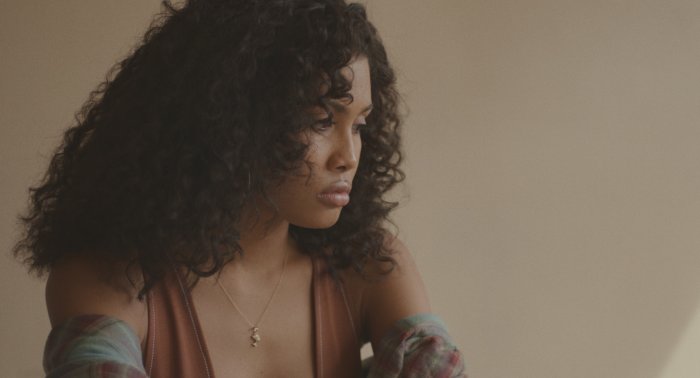
KRAMER: Mother McQueen is certainly a protector. I love the line, “There should be more mothers like me.” How did you find the character’s attitude?
QUARLES: I auditioned for Tekay (Devon Carpenter). They brought me back in, and I was asked to give them advice, and I told them what my role in ballroom was; that I was a mother. I was written in, and a part of the foundation in the House. I was making sure that everyone in the House was good. I’m the motivation, and make sure we get out there, and turn it, and we walk.
KRAMER: Leyna, what do you think Wye sees in Paul, and what observations do you have about their relationship, which involves her having to trust and deal with truth and lies?
BLOOM: They have an attraction, and she tries to figure out what draws her to this person. She just felt he was different and stood out, and she trusted him, and vice versa. They found this level where Paul felt lost, and Wye had had that same experience. She allows him to understand that he’s not alone, and they find their own way. What do you think, Afrika?
QUARLES: Their interaction was so rare and so natural. There was a sense of curiosity for Wye. This person is interesting. The same goes for Paul. He saw a light shining around Wye and wanted to know more, which drives him to go into this place. I’m connected in some way. It was true.
KRAMER: I like the scene between Wye and Paul on the fire escape. Do you think Wye is a role model for Paul?
BLOOM: Here are two people who dealt with trauma. One person has healed, and one is learning how to heal. Paul is coming from a different environment. And he wants to know how does she choose right from wrong? He’s stuck and trying to grow, and he is finally around someone who has figured it out. Paul learns he can be safe with Wye.
KRAMER: Afrika, you shine in a scene where Mother McQueen talks with Paul about Wye. What observations do you have about a white boy wanting to join the ballroom scene?
QUARLES: Being the parent, you have to think broader and wider than how the children are going to feel. They are protecting something that is theirs. This is a space they created, and normally, you see Black and brown, so when someone from another color comes in, they stand out. But as a parent, even though we know this, we can’t think this way. It’s still a person and they need to be embraced no matter the color. Sometimes people need others to find a family of friends, and that was something I loved about my character, Mother McQueen was still able to console him, and guide him and help him understand.
KRAMER: “Port Authority” is very much about the ideas of home and family. Can you talk about this theme?
BLOOM: For me, family is really where you can literally, and organically, be yourself. You can get help figuring out who you are through that process and how we can all develop and grow from each other. Family in today’s society is a new way to navigate yourself and your identity, especially if you are queer or trans and a person of color. The relationships I’ve built with my chosen family have taken me to places I couldn’t go with my immediate family. There are groups and communities in society that are being neglected, and you find community to fight things in society and you can redefine things in every way possible. I received that from the ballroom scene. Sometimes our own immediate families don’t have the tools, resources, or capacity to express that type of love.
QUARLES: It’s a place where we can literally be comfortable. We don’t have to wear multiple skins. Sometimes you do, because people come to this scene broken, some don’t come broken, but this scene is a place where you can find the confidence that people may have taken away from you. We are a community built off involving and protecting.
“PORT AUTHORITY” | Directed by Danielle Lessovitz | In theaters May 28, and on Digital and on Demand June 1. Distributed by Momentum Pictures

